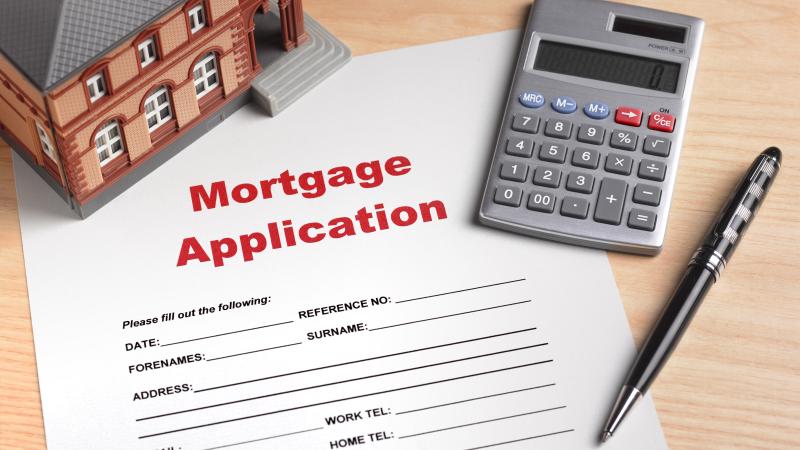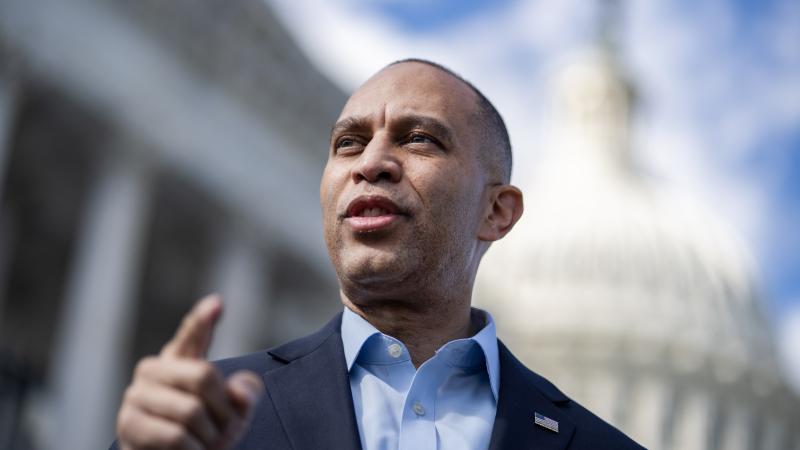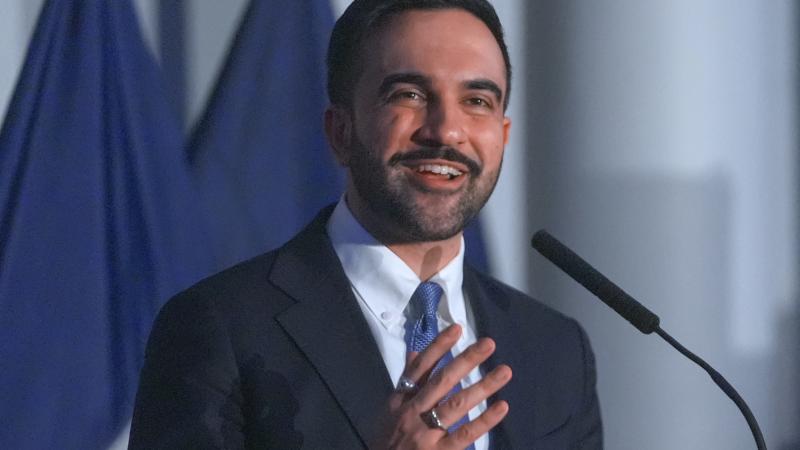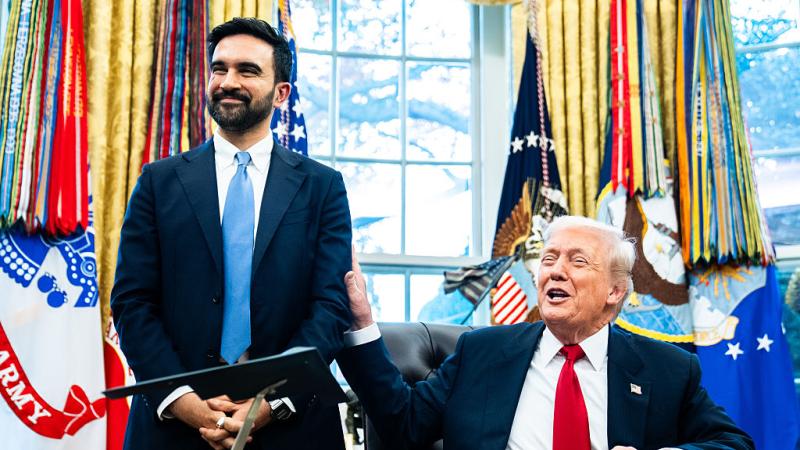With prices at top of Americans' minds, Trump and Harris vie for the initiative on the economy
Both candidates largely addressed the same issues, namely the costs of daily commodities, housing, and health care.
The economy was top of mind this week for both President Donald Trump and Vice President Kamala Harris, who each delivered policy addresses outlining their keynote initiatives to combat rising prices and address other cost-of-living issues.
Broadly speaking, Trump’s agenda was one of deregulation while Harris proposed more direct government intervention in the market. The former president vowed to “Make America Affordable Again” and committed to price reduction goals such as reducing energy costs by 50%.
Harris’s approach, meanwhile, triggered a torrent of criticisms from Trump, who likened her plans to those of Venezuelan President Nicolás Maduro.
"She's running on the Maduro plan," he said during a press conference. "[L]ike something straight out of Venezuela or the Soviet Union.”
The pair traded barbs over the course of the week, with Trump delivering his address on Wednesday and holding a subsequent press conference Thursday. Harris, for her part, appeared alongside President Joe Biden on Thursday to discuss the economy, before delivering a standalone address on the matter Friday.
Both candidates largely addressed the same issues, namely the costs of daily commodities, housing, and health care. Here is a look at the key differences in their approaches.
Inflation
Rising prices, particularly those of everyday commodities such as groceries, have surged under the past four years, a development that Trump has attributed to the Biden-Harris administration’s spending policies.
"Their inflation Reduction Act, by the way, was a disaster. It's what caused the inflation. Their inflation Reduction Act was a con job," he said. "They actually admitted that it wasn't really for inflation that they did it. They don't know why they did it, but they named it the inflation Reduction Act, which was a very nice name, [it] got approved based on that. Unfortunately, people didn't understand it. I understood it. I said that's going to cause tremendous inflation."
To address the matter, Trump indicated he would work not only to curb price hikes, but to reverse the trend and lower them outright.
"On my first day back in the Oval Office, I will sign an executive order directing every cabinet secretary and agency head to use every tool and authority at their disposal to defeat inflation and to bring consumer prices rapidly down. We'll do it very rapidly," Trump said in a Wednesday speech in Asheville, N.C. "From the day I take the oath of office, we will rapidly drive prices down and make America affordable again."
This week, moreover, reports emerged that Harris would support a populist plan to ban “corporate price-gouging,” a move that drew widespread scrutiny and prompted Trump’s comparisons with Maduro.
“So believe me, as President, I will go after the bad actors, and I will work to pass the first ever federal ban on price-gouging on food,” she later said at a Friday rally. “My plan will include new penalties for opportunistic companies that exploit crises and break the rules, and we will support smaller food businesses that are trying to play by the rules and get ahead.”
"Now, Kamala is reportedly proposing communist price controls," Trump said at a Thursday press conference at his Bedminster, N.J., estate. "If they worked, I'd go along with it too. But they don't work. They actually have the exact opposite impact and effect, but it leads to food shortages, rationing, hunger, [and] dramatically more inflation." He further called the move “an admission that her economic policies have totally failed and caused really a catastrophe for our country.”
Republicans were not alone in their criticisms, however, as Washington Post columnist Catherine Rampell derided the move, saying "hard to exaggerate how bad this policy is."
“If your opponent claims you’re a ‘communist,’ maybe don’t start with an economic agenda that can (accurately) be labeled as federal price controls,” she wrote.
“This is not sensible policy, and I think the biggest hope is that it ends up being a lot of rhetoric and no reality,” Harvard economist and Obama administration veteran Jason Furman told the New York Times. “There’s no upside here, and there is some downside.”
But Harris also appropriated a typically Republican approach as well: the tax cut.
“There's one more way I will help families deal with rising costs, and that's by letting you keep more of your hard earned money,” she said. “Under my plan, more than 100 million Americans will get a tax cut, and we will do this by restoring two tax cuts designed to help middle class and working Americans: the Earned Income Tax Credit and the Child Tax Credit, through which millions of Americans with children got to keep more of their hard earned income.”
Housing affordability
Cost of housing has emerged as a prominent issue for younger voters, many of whom are struggling to save the funds to make a down payment on a home. Trump proposed to tackle the issue from the supply side by encouraging construction and land deregulation to open up additional space for new developments.
“We're going to open up tracks of federal land for housing construction. We desperately need housing for people who can't afford what's going on now, and when we open it up and we take off some of the restrictions and regulations,” he said Wednesday. “You know, in California, 50% of the cost of the house is regulations. They have to adhere to regulations that bring the cost of the house up by 50%.”
Harris, for her part, sought to address the matter by providing eligible homebuyers with direct financial assistance to support their down payments.
"Many Americans work hard at their jobs, save, and pay their rent on time month after month. But they can’t save enough after paying their rent and other bills to save for a down payment -- denying them a shot at owning a home and building wealth,” the Harris campaign told ABC News. “As the Harris-Walz plan starts to expand the supply of entry-level homes, they will, during their first term, provide working families who have paid their rent on time for two years and are buying their first home up to $25,000 in down-payment assistance, with more generous support for first-generation homeowners."
She later confirmed the cash giveaway policy during her Friday speech.
“As President, I will work in partnership with industry to build the housing we need, both to rent and to buy, we will take down barriers and cut red tape, including at the state and local levels,” she also said. “And by the end of my first term, we will end America's housing shortage by building 3 million new homes and rentals that are affordable for the middle class.”
Her promise to "cut red tape" drew scrutiny from industry experts, with Job Creators network CEO Alfredo Ortiz saying "[h]er administration added $1.6 trillion in new regulations and now claims she will cut red tape to lower housing costs. Give me a break."
Beyond the down payment assistance, she vowed to crack down on “anti-competitive” practices by corporate landlords who set “artificially high rental prices.”
Seniors and health care
Both campaigns directed energy toward alleviating the economic burdens on seniors this week, though Trump focused on taxation while Harris addressed drug prices.
"To help seniors on fixed incomes who are suffering the ravages of inflation, there will be no tax on Social Security,” Trump promised. On healthcare, he said less, but insisted he was “going to keep the Affordable Care Act unless we can do something much better.”
Harris, meanwhile, pointed to her support for a measure permitting Medicare to negotiate with drug companies on the cost of prescription drugs.
"Two years ago, as vice president, I was proud to cast the tie breaking vote that sent the bill that gave Medicare the power to negotiate and let it get to the President's desk,” Harris said at Maryland event on Thursday. "We believe deeply every senior in our nation should be able to live with security, stability and dignity, and so in the United States of America, no senior should have to choose between either filling their prescription or paying their rent.”
“For seniors, we let Medicare negotiate lower drug prices for seniors,” she said Friday. “And just yesterday, we announced that we are lowering the price by up to 80% for 10 more life saving drugs. And I pledge to continue this progress.”
At the Friday rally, she further vowed to “demand transparency from the middlemen” between pharmaceutical and insurance companies who adjust prices. Additionally, she promised to work with state governors to cancel medical debt for millions of Americans.
No tax on tips
Last Saturday, Harris embraced a keynote Trump policy position and endorsed an end to taxation on tips. Trump introduced the plan in June at a rally in Nevada and accused Harris of being a “copycat.”
Apart from “copycat” claims, however, Harris drew allegations of hypocrisy in light of the Biden administration’s efforts to bolster compliance with tip reporting standards through the Department of the Treasury’s Service Industry Tip Compliance Agreement (SITCA) program, which it debuted in 2023.
At the time, the Treasury said SITC would help it "take advantage of advancements in point-of-sale, time and attendance systems, and electronic payment settlement methods to improve tip reporting compliance."
Ben Whedon is an editor and reporter for Just the News. Follow him on X.
















